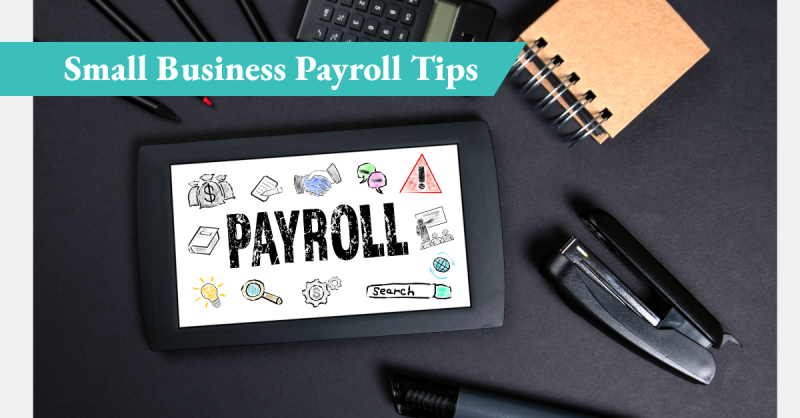 Staying on top of payroll tax compliance is non-negotiable for small businesses. A single misstep can result in hefty fines, strained employee relationships, and even legal trouble. Whether you’re managing payroll yourself or working with a provider, understanding the essentials can save you time, money, and a whole lot of stress.
Staying on top of payroll tax compliance is non-negotiable for small businesses. A single misstep can result in hefty fines, strained employee relationships, and even legal trouble. Whether you’re managing payroll yourself or working with a provider, understanding the essentials can save you time, money, and a whole lot of stress.
Here are some practical tips to help you master payroll tax compliance for small businesses:
Know Your Federal Tax Responsibilities
Understanding your federal payroll tax obligations is a must.
- Federal income tax: Use employee W-4 forms and IRS tax tables to calculate the correct withholding amount.
- FICA taxes (Social Security and Medicare): Employers and employees each pay 6.2% for Social Security (up to the wage base limit of $176,100 in 2025) and 1.45% for Medicare—with no income cap.
Keep in mind that accurate calculation and timely payment of these taxes are vital to avoiding penalties.
Don’t Forget Employer Contributions
Beyond employee withholdings, businesses are responsible for a few other payroll taxes:
- Federal Unemployment Tax (FUTA): Employers pay this to support unemployment benefits.
- State unemployment insurance (SUI): Rates and rules vary widely, so check with your state labor department.
Ignoring these obligations can result in surprise costs—and nobody likes surprise costs.
Follow Payroll Tax Deadlines to the Letter
Missed payroll tax deadlines can be expensive. Make sure you’re aware of:
- Deposit schedules: Whether you deposit monthly or semi-weekly depends on how much tax you withhold.
- Quarterly and annual filings: Forms like the 941 (quarterly) and 940 (annually for FUTA) must be submitted on time, along with payment.
Watch out: The IRS can enforce the Trust Fund Recovery Penalty, which holds “responsible persons” personally liable for unpaid payroll taxes. That could be an owner, partner, or employee in charge of funds.
Keep Payroll Records Organized
Accurate and well-organized payroll records are your best defense against tax issues. Track everything—employee hours, gross wages, tax withholdings, and any additional deductions. Having everything documented and easy to access is especially crucial if the IRS or your state’s tax authority ever comes knocking.
Pro Tip: Store your records digitally and back them up regularly. Many payroll software solutions offer built-in storage and reporting tools.
Stay Updated on Payroll Tax Laws
Tax regulations change frequently at both the federal and state level. Staying informed ensures your payroll systems and processes stay compliant—no last-minute scrambling required.
Set up alerts from the IRS or subscribe to newsletters from reputable accounting and HR sources so you’re always a step ahead.
Work with a Payroll Professional
Even with the best intentions, payroll tax compliance can be complicated. That’s where professional help comes in.
A qualified advisor can:
- Recommend the right payroll software
- Ensure accurate tax calculations
- Navigate multi-state filings
- Keep your systems up to date with changing laws
In short, they’ll help you sleep better at night knowing your payroll is in good hands.
Final Thoughts
Payroll tax compliance for small businesses doesn’t have to be overwhelming. With the right systems, knowledge, and support, you can avoid common pitfalls and focus on growing your business.
If you’re ready for peace of mind when it comes to payroll, we’re here to help.



